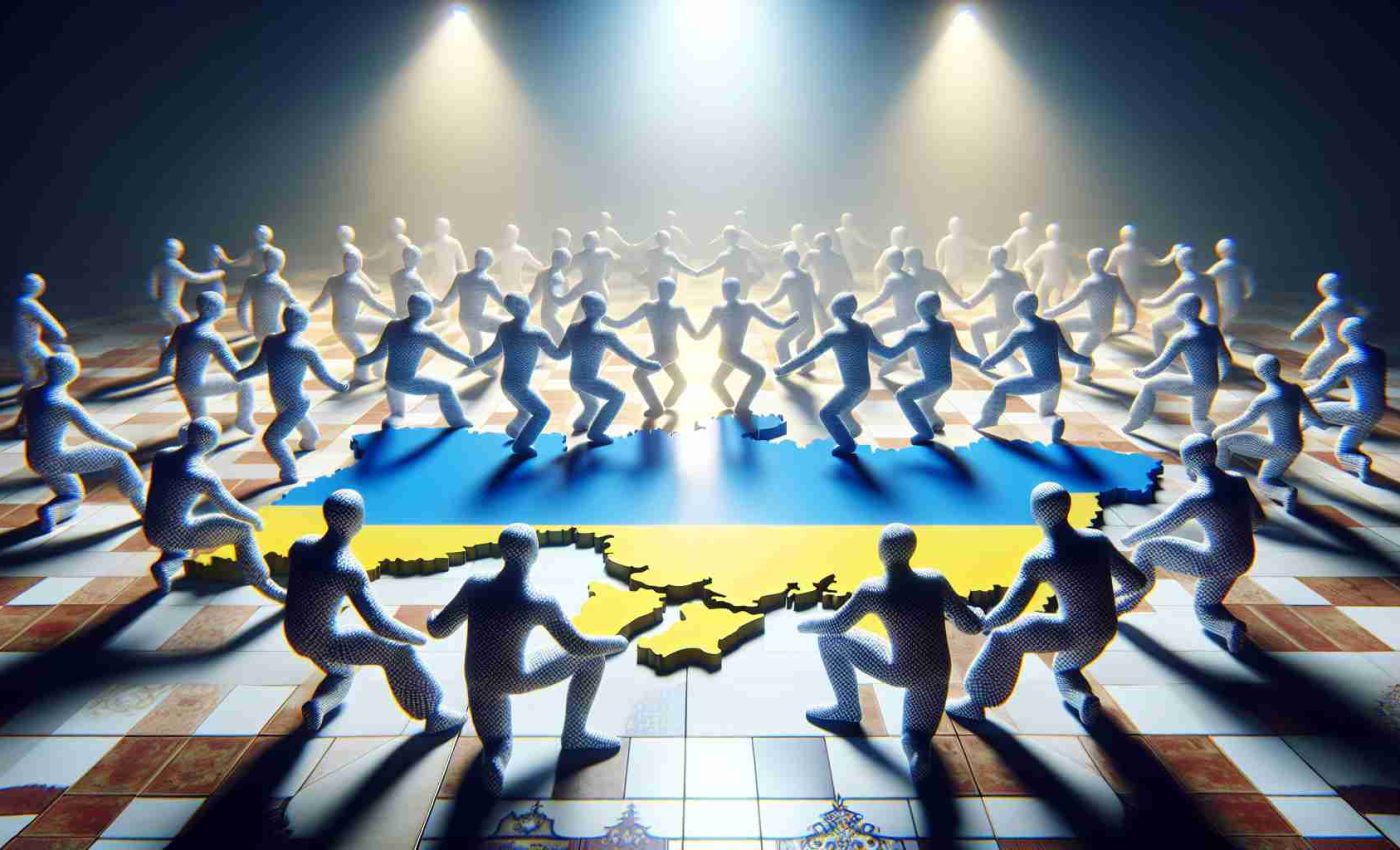- High-stakes negotiations are underway globally concerning the Ukrainian crisis, emphasizing Europe’s need to fortify defenses and unify strategies.
- Emmanuel Macron and Donald Trump discussed the situation, leading to urgent European leader meetings at the Élysée Palace.
- President Volodymyr Zelensky’s Middle East tour highlights Ukraine’s pivotal role amidst Russian-American talks in Riyadh, raising questions about shifting allegiances.
- Europe faces division over troop deployment to Ukraine, with Germany cautious, the UK ready to act, and Poland and Sweden considering intervention.
- Sergei Lavrov rejects European involvement in peace talks, despite warmer ties between Trump and Putin hinting at potential ceasefire negotiations.
- This dynamic situation underscores the need for decisive leadership and unity in the quest for peace.
A flurry of diplomatic activity cascades across the globe as world leaders engage in high-stakes negotiations surrounding the Ukrainian crisis. On a day marked by significant dialogues, Emmanuel Macron conversed with Donald Trump over the phone, setting the stage for urgent discussions among European leaders at the Élysée Palace. The backdrop: an increasingly pressing need for Europe to fortify its defenses and unify its strategic approach amidst escalating tensions with Russia.
Meanwhile, President Volodymyr Zelensky embarked on a strategic tour across the Middle East, stopping first in the United Arab Emirates and setting his sights next on Turkey and Saudi Arabia. His itinerary coincides with critical Russian-American talks scheduled in Riyadh, sparking speculation about shifting allegiances and regional dynamics. Although not participating in the Riyadh discussions, Zelensky’s presence in the region underscores Ukraine’s central role in these intricate geopolitics.
In the heart of Europe, Ursula von der Leyen, charged the continent with embracing a mindset of urgency and action. European leaders, divided on the potential deployment of troops to Ukraine, weigh their options cautiously. Germany remains reticent, while the UK prepares to act, and Poland and Sweden deliberate over possible interventions.
Simultaneously, the Kremlin stands firmly against European involvement, as Sergei Lavrov dismisses the European Union’s role in the success of peace talks. This stance comes amidst warming ties between Trump and Putin, hinting at possible ceasefire negotiations to dismantle the longstanding war machinery.
The choreography of these international maneuvers reveals a global stage where alliances and strategies are being redefined. The takeaway: In a rapidly shifting geopolitical environment, the quest for peace demands decisive leadership and unity from Europe and beyond.
Global Geopolitics in Flux: What You Need to Know About the Ukrainian Crisis
Diplomatic Strategies and Global Implications
The Ukrainian crisis has brought about a whirlwind of diplomatic efforts, emphasizing the urgent need for a cohesive strategic approach from Europe and its allies. To provide a deeper understanding and actionable insights, let’s explore various aspects that weren’t fully covered in the source article.
How-To Steps & Life Hacks
Understanding Realpolitik Diplomacy:
1. Research Geopolitical History: Gain perspectives on historical alliances and conflicts to grasp current dynamics.
2. Monitor Global News Regularly: Follow reputable sources like BBC, Al Jazeera, and Reuters for timely updates.
3. Engage in Foreign Policy Studies: Online platforms, like Coursera, offer courses on international relations.
Real-World Use Cases
Impact on the Defense Industry:
– Increased defense budgets across Europe signal robust investment in military infrastructure and technology. For instance, France plans to increase its defense spending by 10% annually over the next few years (source: Defense News).
– Nations like Poland are purchasing advanced missile defense systems, reflecting a strategic shift towards deterrence.
Market Forecasts & Industry Trends
Defense & Security Markets:
– The global defense market is projected to grow at a CAGR of 3.5% from 2023 to 2028. Europe is expected to see a significant surge due to rising geopolitical tensions (source: MarketWatch).
Reviews & Comparisons
European Defense Strategies:
– UK vs. Germany: The UK emphasizes rapid military deployment capabilities, while Germany focuses on diplomatic solutions. Reviews from defense analysts highlight the effectiveness of a hybrid approach combining hard and soft power.
Controversies & Limitations
Diplomatic Strains:
– Criticism arises over Europe’s divided stance, with some leaders partially blaming lack of unilateral strategy as a limitation in resolving the crisis swiftly (source: Foreign Policy).
Features, Specs & Pricing
Military Technology Advances:
– Innovations like AI-driven drone systems play a crucial role, enhancing surveillance and defense capabilities and costing billions in development but representing future military strategy pivots.
Security & Sustainability
Energy Security:
– Europe’s dependence on Russian energy highlights the need for sustainable energy policies. Diversifying energy sources and investing in renewables are key strategic moves.
Insights & Predictions
Shifts in Alliances:
– Middle East diplomatic tours by leaders like Zelensky suggest potential new alliances that could alter conventional power balances in the region.
Pros & Cons Overview
Pros:
– Increased defense collaboration could deter aggressions.
– Enhanced diplomatic dialogues may lead to lasting peace solutions.
Cons:
– Military expansions risk escalating tensions.
– Energy diversification requires significant investments and infrastructure changes.
Actionable Recommendations
1. Invest in Comprehensive News Media: Subscribing to international news outlets ensures continuous awareness of political shifts.
2. Support Diplomatic Engagements: Encourage policy reforms that promote peace through multilayered diplomacy.
3. Advocate for Sustainable Energy Policies: Stressing renewable energy investments among policymakers can reduce geopolitical energy dependence.
For more insights on geopolitics and international collaborations, visit UN and NATO.
In these complicated times, staying informed and proactive can empower individuals and institutions to navigate through uncertainties effectively.






